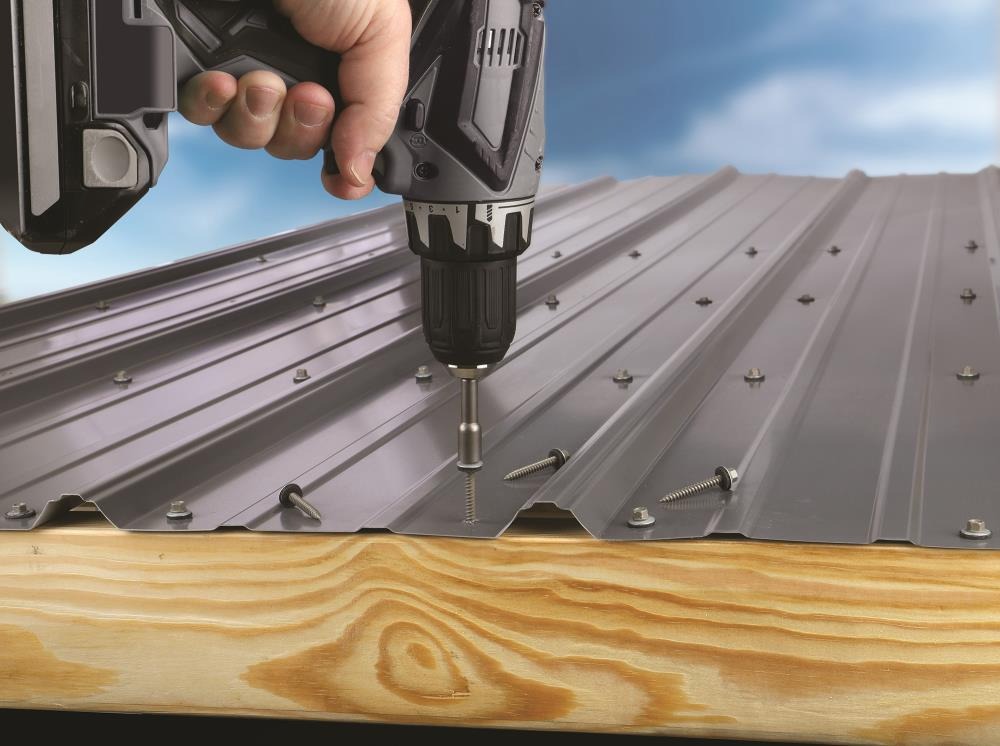
Roofing Screws

When it comes to securing your roof, choosing the right fasteners is essential. Roofing screws play a critical role in ensuring that your roofing materials are securely attached, providing long-lasting durability and protection against the elements. In this guide, we will delve into the various types of roofing screws, including roofing screws and caps, roofing screws with washers, and roofing bolts, to help you make an informed decision for your roofing projects. Roofing screws are specialized fasteners designed specifically for attaching roofing materials such as metal sheets, tiles, or shingles to the underlying structure of a roof. Unlike standard screws, roofing screws are engineered to withstand extreme weather conditions, ensuring that your roof remains intact and secure over time. These screws typically feature a sharp, pointed tip that easily penetrates roofing materials, while their threaded body provides a strong hold. One of the key considerations when selecting roofing screws is their ability to prevent water penetration. This is where roofing screws and caps come into play. Roofing screws with caps are designed to offer an additional layer of protection by sealing the screw head, preventing water from seeping through and causing damage to the roof structure. Caps are typically made from durable materials such as rubber or plastic and are designed to fit snugly over the screw head. This not only helps in keeping moisture out but also adds a finished look to your roofing installation. When using roofing screws and caps, you can be assured of a secure and watertight roof, which is particularly important in regions with heavy rainfall or snow. For those looking for even more protection, roofing screws with washers are an excellent choice. Washers are flat, circular discs that are placed between the screw head and the roofing material. They serve to distribute the load of the screw more evenly, reducing the risk of damage to the roofing material and providing a more secure fastening. Roofing screws with washers are especially beneficial when working with softer roofing materials, such as certain types of metal or composite shingles, which may be prone to tearing or cracking under the pressure of a screw. The washer acts as a buffer, spreading the force over a larger area and minimizing the potential for damage. In addition to providing extra stability, washers also help to prevent leaks. When tightened, the washer compresses against the roofing material, creating a tight seal that keeps water from penetrating the screw hole. This added layer of protection is invaluable in ensuring the long-term durability of your roof. While roofing screws are suitable for most standard roofing applications, there are instances where a more heavy-duty solution is required. Roofing bolts offer this enhanced level of strength and security, making them ideal for securing structural components of a roof. Roofing bolts are typically larger and thicker than standard screws, and they are often used in conjunction with nuts to create a secure, load-bearing connection. This makes them perfect for applications where the roof is subject to significant stress or weight, such as in industrial or commercial buildings. Using roofing bolts ensures that the structural integrity of your roof is maintained, even under extreme conditions. Whether you’re working with metal roofing panels, timber frames, or other heavy materials, roofing bolts provide the strength and reliability needed to keep everything securely in place. When selecting roofing screws and bolts, it’s important to consider the specific needs of your project. Factors such as the type of roofing material, environmental conditions, and load requirements will all play a role in determining the best fasteners for the job. For general roofing applications, roofing screws are typically the go-to choice due to their ease of installation and versatility. However, for added protection, roofing screws with caps or roofing screws with washers may be more suitable, depending on the specific requirements of your roof. For more demanding projects, particularly those involving heavy or load-bearing materials, roofing bolts provide the necessary strength and security to ensure a stable and long-lasting roof structure. In summary, roofing screws and bolts are vital components in any roofing project, providing the necessary security and protection to ensure a durable and weather-resistant roof. Whether you opt for standard roofing screws, roofing screws with caps, roofing screws with washers, or heavy-duty roofing bolts, selecting the right fasteners will ensure the success and longevity of your roofing installation. Make sure to choose high-quality products that are suited to your specific needs, and you’ll have a roof that stands the test of time. This content is designed to be informative, focusing on the use of roofing screws, caps, washers, and bolts, while seamlessly integrating the requested keywords.What Are Roofing Screws?
Roofing Screws and Caps: A Combination for Enhanced Protection
Roofing Screws with Washers: Added Security and Stability
Roofing Bolts: Heavy-Duty Fastening for Structural Integrity
Choosing the Right Roofing Screws and Bolts
Conclusion

